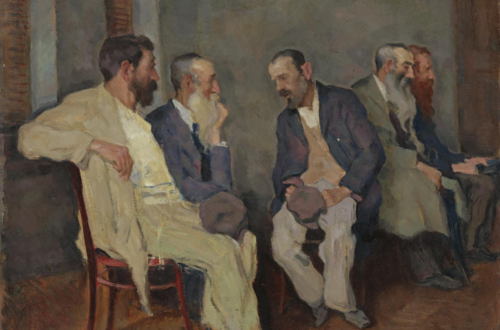I am a Brit living in America. My favorite restaurant is Cracker Barrel, I display a large star spangled banner in my study, and occasionally practice my ‘mercan accent (much to the embarrassment of my wife). I am constantly appropriating a culture not of my own. But then I’ve been doing it for years. In my teens, my guitar heroes included black blues players like Albert King and John Lee Hooker. And I’m not alone: Eric Clapton, John Mayall, Gary Moore, and a host of other white Brits spent hours appropriating the sound, look and psychology of the poor black man from the delta.
So, are we doing something wrong? Is there something immoral about the act of cultural appropriation? Is my opening paragraph a confession or compliment? If a white American celebrates Cinco de Mayo, is he somehow demeaning another culture? If hoop earrings are mostly worn by black women, is it wrong for a white woman to copy them?
Some people argue that if a powerful group appropriates the culture of a less powerful group, then it is immoral. Thus, rich white Americans adopting the styles of a minority culture is considered wrong. The relevant feature that distinguishes an immoral and a virtuous appropriation is power. So my appropriation of Cracker Barrel style is fine, but my blues licks are a sign of bigotry.
It is not entirely clear what power we are talking about. Is it political power, media influence, or just being a majority? And what is the scope of the criteria? Is it bound to a city, state, nation, or globe? I know American missionaries who appropriate the culture of their hosts. Is this wrong?
It is not clear why it is wrong to copy a culture. It is not theft in any meaningful sense of the term. Cultural features don’t belong to anyone in any way in which one might steal them. In law, property rights belong to individuals or companies. Cultures are neither. There is no cultural copyright on hooped earrings, no festival rights on Cinco deMayo.
It might be suggested that such things are cultural commodities like French cheese, or Champagne. In recent years, the EU decided that anyone manufacturing sparkling wine could only name it Champagne if the grapes came from the Champagne region of France. But products falsely claiming to be from a region are making false claims about their product. No one is making a false claim when appropriating some feature of another culture and they’re not ordinarily profiting from it either. Of course, courts sometimes follow the mob and not the book so it will not be long before a white guy making a taco will face some kind of punishment for doing so.
Consider the case of an ‘artist’ who reconstructed several historic gallows. One gallows was found to be a version of the gallows used in 1862 to hang 38 men from the Dakota Oyate tribe. The Dakota people complained and the art gallery burned the piece. According to a statement, the artist has “committed to never create the Dakota gallows again. He commits to transferring the intellectual property rights of this work to the Dakota Oyate.” It may be that in future we will be conferring property rights to cultures in order to subject perpetrators of cultural appropriation to criminal charges.
This raises the issue of whether one culture can be better than another culture. What makes one culture better than another is also a matter for debate. It is not soley a moral issue. For example, a highly moral culture may also be a less educated culture. Conversely, a culture that is highly literate may be morally repugnant. And even making these judgments presupposes that education and morality are goods worth having in a culture.
Some people are prone to the view that all cultures are of equivalent value and to say not is to engage in some form of bigotry.
Nonsense
When one emulates a gang culture one is emulating a wicked culture – one based on murder, theft, and a desire to stick it to any authority figure their path. Even in jest, appropriating such a culture is not appropriating anything of any value. Emulating the culture of the Klan is no poorer choice. Both cultures thrive on group-think spite. On the matter of the Klan, it has been argued that they are the least guilty of cultural appropriation (read an amusing dialogue to this effect here)
But this at least leads to the idea that we ought to be appropriating good cultures and not bad ones. Of course, the postmodern person might reply that it is culture that determines what is good and bad, so there is no way to determine which culture ought to be appropriated. But this is silly. Can one really hold that there is no objective difference between the value of the culture of MS13 and the culture of the Sisters of Calcutta? Surely we would want a vicious law-breaker from MS13 to begin a journey of cultural appropriation, appropriating pretty much any culture other than his own.


